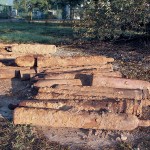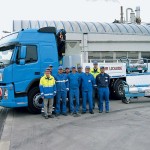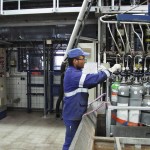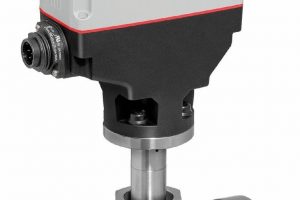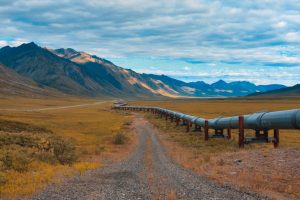It is prohibited to simply discharge toxic, corrosive or inflam-mable residual gases from compressed gas cylinders into the atmosphere. Gas cylinders rented from Air Liquide can be returned free of charge if European ADR regulations are followed. All other gas cylinders, such as customer-owned cylinders or cylinders found on constructions sites, for example, also need to be treated in line with the German waste law on closed loop recycling and waste management. The owner is thus responsible for the proper disposal of his cylinders and their contents in compliance with applicable European law.
Dipl.-Chem. Christian Schedel, Dipl.-Ing. Joachim Christen, Frank Dimmers
The residual gases recycling plant is part of Air Liquide’s site for specialty gases at Krefeld-Gellep and certified as a professional disposal enterprise. It has obtained all approvals required for collecting, transporting, storing, handling and disposing of such waste. Defective cylinders are transported in special recovery containers and handled by specifically skilled employees. These teams of specialists are called to help anywhere in Germany, but also all over Europe – from Finland to Portugal – if gas cylinders need to be expertly analysed and disposed of. The Gellep site deals with approx. 16,000 gas cylinders per year.
Cylinders no longer required or emptied can be transported in compliance with ADR regulations even if their inspection period has expired. This does not apply to defective cylinders (e. g. damaged by falling or by heavy corrosion) or cylinders with unknown contents. In such cases, the employees of Air Liquide who have been particularly trained are ready to help with recovery containers of different sizes. Prior to transporting such cylinders, the contents of the cylinders must be identified on site. To this end, the cylinder caps are removed and the cylinders are freed from corrosion (depending on their state), the valves are checked, the cylinders are weighed and the required transport documents are prepared. The specialists rely on their experience to determine the contents by inspecting the connections, valves or residual paint and on technical processes to make corroded markings visible again by grinding and etching. Furthermore, they use a mobile and robust FTIR spectrometre with special detection cells and a database containing numerous spectres used for comparison. In the residual gases recycling plant at Krefeld-Gellep, trained personnel inspects the cylinders upon their arrival and unloads the recovery containers. If the valves are no longer operational (which is rarely the case), the plant uses one of three devices for drilling a hole into the cylinder for discharging its contents in a controlled way. The emptied cylinders are purged with inert gas and/or water in order to remove residual substances adsorbed at the interior wall. Depending on the result of the internal inspection and the evaluation of the overall state of the cylinder, the staff then decides whether the cylinder could be reused or scrapped. Cylinders to be scrapped are recycled in steel production.
Recycling of residual gases
It goes without saying that any residual substances are completely removed and disposed of in the most environmentally friendly way before the cylinders are recycled. Users should therefore maintain an internal pressure of at least 3 bars and then close the valve in order to prevent foreign matter contained in ambient air or in the customer’s process from entering the cylinder because it might contaminate its contents in an uncontrolled way or corrode its internal surface.
The plant at Krefeld-Gellep erected in 1992 and approved in line with the Federal Immission Control Act is based on experience made with a previous plant at Duisburg during the 1980’s. On an area of approx. 1,000 m², more than 50 gases and their mixtures can be processed in nine different units. If larger quantities of the same gas need to be treated, it can be profitable to transfill and clean it in a purification system. In most cases, however, only individual cylinders with small quantities of residual gas arrive at Gellep. The treatment processes for such cylinders can be subdivided as follows:
Absorption
In washing columns made of plastic, residual gases react with specifically selected adsorber solutions. Packings and special fittings finely and uniformly distribute the fluids and improve the exchange of material. The washing solutions are selected in such a way that a conversion product is generated that can be recycled. The following substances are used:
- Lyes such as soda lye or caustic potash solutions for the treatment of acid gases such as boron trichloride
- Lyes with oxidising additives such as sodium hypochlorite for the absorption of sulphur dioxide
- Acids (in particular sulphuric acid) for alkaline gases such as ammonia that reacts with sulphuric acid to generate the fertiliser ammonium sulphate
The three blocks of columns are designed in such a way that they are able to withstand the stress caused by different chemical properties of the gases. If technically feasible, they can be flexibly adjusted to the required purpose.
Thermal decomposition
Under high temperatures, many flam-mable gases turn into reaction products with no impact on the environment or they generate substances that can be neutralised by absorption. In order to prevent the formation of undesired by-products, not only the combustion process must be controlled to run at specific temperatures but the cooling process also needs to rapidly pass through certain critical temperature ranges. The residual gases recycling plant is thus equipped with an optimised and monitored combustion chamber with a flue gas scrubber installed downstream. These items of equipment are used to treat hydrogen sulphide, methyl bromide and methyl chloride, for example.
Packed bed absorption
Solid materials are used for absorbing highly toxic residual gases such as arsine, metal carbonyls or fluoride and for converting them into less hazardous substances. This reaction partly generates material that needs to be terminally stored as hazardous waste. Fluoride represents the largest quantity among these gases. The absorber loaded with fluoride can be used as an additive for the production of aluminium.
Open combustion
Among the flammable gases, silane is treated in a special way: Its combustion generates the solid material silicon dioxide as a very fine dust that tends to bake on hard surfaces affecting the functionability of the combustion chamber. The combustion of silane in an open flame with a subsequent extraction of the generated silicon dioxide at low velocity has proved its worth. The particles are reliably separated by a high-performance filter.
Tank farm
The washing liquids for the reaction columns are stored in a central tank farm to which all loaded solutions are returned and collected separately depending on the type of processing. The site is equipped with mixers able to produce adsorption solu-tions with low concentrations fully automatically out of conventional highly concentrated chemicals. A sophisticated monitoring system ensures that malfunctions of the valves and pumps of the tank farm or operating errors do not entail a mixing of the tanks‘ contents. During the construction of the tank farm and the associated unloading station, top priority was given to water protection.
On the safe side
Air Liquide’s disposal service for rented and customer-owned cylinders exempts users from their obligations arising from European waste law on closed loop recycling and waste management. This service is free of charge for properly handled rented cylinders of Air Liquide Germany and subject to a fee for customer-owned cylinders. If the cylinder owner charges a certified professional disposal enterprise with the disposal of his residual gases, he has largely fulfilled his duty of care with regard to the waste produced. Furthermore, this procedure makes it much easier for the owner to submit evidence to authorities about the treatment of his waste.
Air Liquide not only offers this disposal service to customers but also to third parties. In the residual gases recycling plant, it is also possible to dispose of gases that are not part of the Air Liquide product range. On the internet, a list of all substances covered by this service can be accessed including their respective code numbers and acceptance criteria. Individual inquiries can be submitted to the disposal team for substances not indicated on this list.
Air Liquide Deutschland GmbH frank.dimmers@airliquide.com www.airliquide.com
Share:



